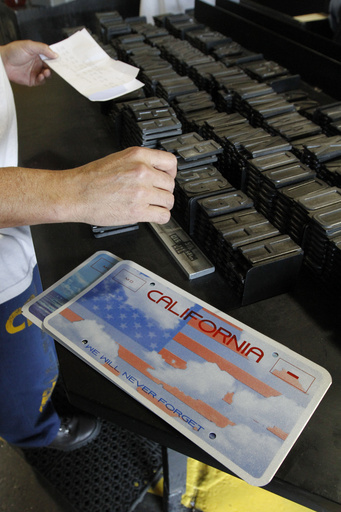
SACRAMENTO, Calif. — California voters are set to weigh in on ten significant ballot propositions, among which are measures aimed at reclassifying certain nonviolent offenses as felonies and establishing the highest minimum wage in the United States.
One of the major propositions is Proposition 36. If passed, this measure would designate shoplifting as a felony for individuals with prior convictions and would elevate penalties for particular drug-related offenses, particularly those involving fentanyl. Additionally, judges would gain the power to mandate treatment for individuals with multiple drug charges.
Advocates argue that this initiative is crucial for addressing gaps in the current legal framework that hinder law enforcement from effectively penalizing shoplifters and drug traffickers. They believe this measure will also aid in combating homelessness and the drug epidemic in the state. However, detractors, including prominent state Democrats and social equity organizations, contend that the initiative would unfairly affect low-income individuals and those struggling with addiction rather than addressing the masterminds behind organized thefts targeting resale markets. They also raise concerns that the initiative may result in reduced funding for drug treatment and mental health services derived from the state’s current lower incarceration rates.
Another significant proposition is Proposition 32, which proposes to raise California’s minimum wage to $18 per hour by 2026, an increase from the existing $16 per hour. Fast food professionals experienced a wage increase this year to a minimum of $20 an hour, while some healthcare workers earn at least $23 an hour.
If approved, California would have the highest state-mandated minimum wage in the nation—a title it first claimed in 2016 with the introduction of a $15 hourly wage. Currently, approximately 40 cities and counties within the state have minimum wage rates exceeding the statewide level, with six jurisdictions surpassing $18 per hour as of this year. Conversely, Hawaii enacted a law in 2022 that will elevate its minimum wage to $18 an hour by 2028. Supporters of this California proposal project that it could positively impact around 2 million workers, encompassing those in hotels and grocery stores. Opponents warn that it could lead to increased operational costs, higher taxes, and job cuts in various industries.
Proposition 4 requests voter approval to borrow $10 billion for an array of climate initiatives, marking the state’s most substantial investment against climate change to date. Of the proposed funding, $3.8 billion is earmarked for improving drinking water systems and enhancing readiness for droughts and floods. Allocations of $1.5 billion will support wildfire preparedness, while $1.2 billion will address challenges linked to rising sea levels.
The remaining funds would be distributed among initiatives focused on parks and outdoor activities, air quality enhancement, extreme heat readiness, biodiversity preservation, and sustainable agricultural practices. Proponents assert that such funding is essential for preparing California for the impacts of climate change, including escalating wildfire risks, water contamination, and extreme weather conditions. In contrast, critics argue that utilizing bonds for these initiatives is an overly costly approach compared to potential direct budget funding. The financial implications for taxpayers could amount to approximately $16 billion to repay the bonds, with annual payments around $400 million.
Proposition 6 aims to amend the state Constitution to eliminate any forms of forced labor. Currently, the Constitution permits forced labor as a form of punishment for crimes, and this exemption has drawn scrutiny from criminal justice reform advocates who highlight the exploitative nature of prison labor, where incarcerated individuals often receive minimal compensation—sometimes less than $1 an hour—for tasks such as firefighting, cleaning, and maintaining cemeteries.
This proposition is part of a broader reparations package introduced by state legislators to address historical injustices and systemic discrimination against Black Californians. Similar amendments have been approved in several other states, including Alabama, Oregon, Tennessee, and Vermont, aiming to eliminate exceptions for slavery and involuntary servitude.
